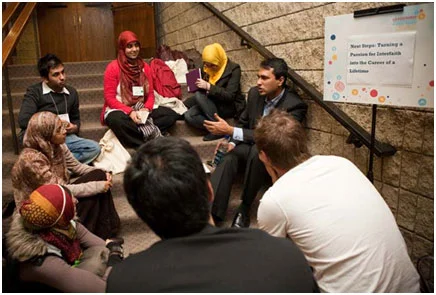New Rooms in the Interfaith Movement
What We Can Learn from the Same-Sex Seating Controversy
The New Identity Politics of Religion
In Promoting Campus Diversity, Don’t Dismiss Religion
Excerpts from Interfaith Leadership: A Primer
Training Interfaith Leaders for the Future
The Shifting Terrain of Interfaith Relationship
TIO: As a second-generation American Muslim, raised in Chicago, with a doctorate from Oxford, you are an examplar of meeting the challenge of growing up in one culture and navigating the culture we share today. Your books unpack the complexities of ‘growing up Muslim in America’ beautifully, vividly. And today you relate to thousands of young people in American universities and colleges, coming into constant contact with second-generation religious minorities. Could you share the biggest challenges they face collectively?
Interfaith Fundraising: How to Make it Work
Foreword to Faithiest: How an Atheist Found Common Ground with the Religious
There is a moment in the middle of Faitheist that nearly took my breath away. Chris is living in Bemidji, a small town in northern Minnesota near the headwaters of the Mississippi river. The nearest big city is Fargo, and it is several hours away. In the winter, the snow piles up so high he can’t see out of the bedroom window in his garden apartment.











